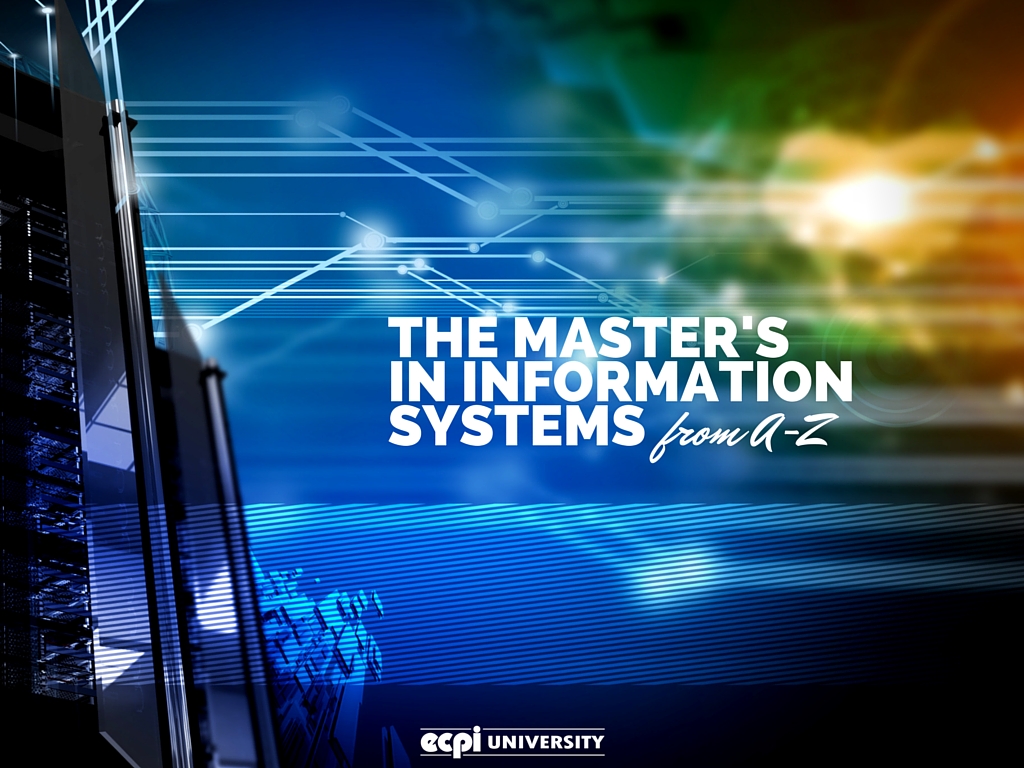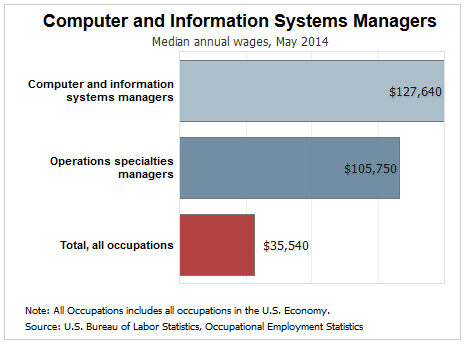
You have probably heard that the jobs people will get in the future do not exist today. This “future jobs” trope says you need to educate yourself for a lifetime, because jobs as-yet-unknown will emerge from future technologies. What is seldom said is the corollary: jobs become extinct despite many people being fully trained in them.
Consider how few people enroll in stagecoach driving schools, train as elevator operators or light gas lamps on city streets. Those people whose jobs are obsolete also need to have a passion for lifelong learning, consider retraining and pursuing new careers, and think about higher education.
Information Systems Alphabet Soup
By learning a few key terms related to Information Systems—say, 26 phrases and words—you can be well on your way to livening up conversations at mixers, impressing human resources officers in interviews, and tuning your brain up to learn even more.
A is for AAA server; authentication, authorization and accounting. With a Master’s in Information Systems, you control employees’ and customers’ access to a company’s computer resources using an AAA server.
 B is for the Bureau of Labor Statistics, which tells us that, in May, 2014, computer and information systems managers earned median annual incomes of $127,640. In the “information” industry, earnings were even higher: $143,680.
B is for the Bureau of Labor Statistics, which tells us that, in May, 2014, computer and information systems managers earned median annual incomes of $127,640. In the “information” industry, earnings were even higher: $143,680.
C stands for Certified Information Security Manager (CISM), an excellent position open to talented individuals with strong educations in Information Systems.
D is for D2D2C, mainly because it looks so cool to write out, but also because it means Disk-to-Disk-to-Cloud, and involves backing up and storing data to “the cloud.”
F is for Flip Chip-Pin Grid Array, mainly because it is both hard and fun to say. It is an advancement in circuitry as designers struggle against the speed of moving electrons to fight friction and reduce distance between chips in the quest for ever-faster computing time.
G stands for Go Bosh, or Go Big or Stay Home, because Chief Information Officers (CIOs) constantly fight for more resources to get jobs done that other C-suite executives demand.
H is for Helium Hard Drive. A sealed helium hard drive can hold more, run cooler and use less power than drives open to the air.
I means Information, the flow of data that moves and shapes our world. We humans have moved through the Stone, Bronze and Iron Ages and are now in the Information Age, which is great, because a thumb drive is a lot easier to carry around than a pocketful of flintknapped arrowheads.
J stands for jello, part of the challenge of jello, liquid, and ice that web page designers face.
K is for Key Performance Indicator (KPI). As a manager and then as you move into the C-Suite, you will be hounded by KPIs in nearly every organization.
L means Leet Speak, as in |-|4(k3r language. Sorry, that’s hacker language, of course.
M is for Master of Science, the degree that could advance your IT career and move you into the big leagues.
N is for NASDAQ, the largest electronic securities exchange in America, and an employer of enormous appetite for people with degrees in Information Systems.
O means an Ohnosecond, which is the elapsed time between hitting a wrong key and realizing you deleted vital work.
P stands for Penetration Testing, in which you attempt to break into the company computer system.
Q means Quantum Computing, the future of information systems, performing millions of operations a second.
R is for Red Flags Rule, regulations from the U.S. Federal Trade Commission to compel businesses to protect consumers from identity theft.
S is for SaaS, which can mean at least three different “as-a-service” ideas: software, storage, or security.
T leads off Transmission Control Protocol/Internet Protocol, or TCP/IP, the fundamental language of the internet.
V stands for VLSI, Very Large-Scale Integration, in which microchips contain hundreds of thousands of transistors.
W is for Wearables Operating System, innovations including wrist computers, embedded clothing, health monitors and the like.
X means X as a Service, in which the variable X replaces the unknown future entity to be delivered as a service to subscribers, such as SaaS, CaaS, PaaS, and Iaas.
Y is for Yak Shaving, the process of taking care of seemingly endless small programming tasks before you can move a project forward.
Z stands for Zero-TV, the Nielsen rating system designation for a home with no cable, satellite or antenna televisions. This number is rising as people turn to internet television.
When I started at ECPI in Richmond, VA, I had no idea where it would lead in my life. I started and went full time over...
Posted by Hunter Barbour on Friday, October 2, 2015
An Information Systems Master’s in 15 Months?
Did you notice the two missing letters above? If you have an eye for detail and order, you are a good candidate for ECPI University, where you can attend 15 months of classes and earn your Master of Science in Information Systems. Contact ECPI today to learn how to get started. All that is missing is U.
DISCLAIMER – ECPI University makes no claim, warranty or guarantee as to actual employability or earning potential to current, past or future students or graduates of any educational program we offer. The ECPI University website is published for informational purposes only. Every effort is made to ensure the accuracy of information contained on the ECPI.edu domain; however, no warranty of accuracy is made. No contractual rights, either expressed or implied, are created by its content.
For more information about ECPI University or any of our programs click here: http://www.ecpi.edu/ or http://ow.ly/Ca1ya.
despite many people being fully trained in them. Consider how few people enroll in stagecoach driving schools, train as elevator operators or light gas lamps on city streets. Those people whose jobs are obsolete also need to have a passion for lifelong learning, consider retraining and pursuing new careers, and think about higher education.


